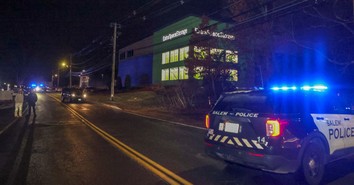Babylon Bee Sues California over New Laws Regulating Political Satire

The Babylon Bee filed a lawsuit against the state of California on Monday, alleging that two recently enacted laws signed by Gov. Gavin Newsom violate the First Amendment by unconstitutionally targeting political satire. Newsom signed the two laws Sept. 17, saying in a statement he was "taking action to address the use of deepfakes and other deceptive digitally generated or altered content in election campaigns."
But The Babylon Bee, a conservative satirical website, alleges in its federal lawsuit that the two laws "use vague and overbroad terms that grant California unbridled enforcement discretion" that infringe on constitutionally protected rights.
Alliance Defending Freedom is representing The Babylon Bee along with Kelly Chang Rickert, a California attorney who regularly engages in online political debate on her blog and social media accounts.
The California legislature passed the laws, the suit says, after Newsom complained about a parody video of Kamala Harris.
"California's war against political memes is censorship, plain and simple. We shouldn't trust the government to decide what is true in our online political debates," said ADF's Jonathan Scruggs. "Gov. Newsom has no constitutional authority to act as the humor police. While lawmakers act as if posting and resharing memes is a threat to democracy, these laws, at the end of the day, censor speech California politicians don't like."
Babylon Bee CEO Seth Dillon said the new laws are targeting protected speech.
"Our job is hard enough when our jokes keep coming true as if they were prophecies," Dillon said. "But it becomes significantly more difficult when self-serving politicians abuse their power to try and control public discourse and clamp down on comedy. Unfortunately for them, the First Amendment secures our right to tell jokes they don't like."
One law in question, AB 2655, requires large online platforms to "remove or label deceptive and digitally altered or created content related to elections during specified periods and requires them to provide mechanisms to report such content," according to Newsom's office. Further, it "authorizes candidates, elected officials, elections officials, the Attorney General, and a district attorney or city attorney" to sue such platforms.
The other law, AB 2839, prohibits the distribution of "materially deceptive" information about elected officials and candidates, Newsom's office said.
But ADF says the laws "use vague and overbroad terms that grant California unbridled enforcement discretion." The laws include such phrases as "falsely appear to a reasonable person," "reasonably likely to harm the reputation or electoral prospects of a candidate," and "undermine confidence in the outcome of [an] … election contest," the lawsuit says.
"These broad and vague laws will chill speech and debate that criticizes politicians and their platforms," the suit says. "Such censorship threatens the heart of public discourse. When debating controversial political ideas, candidates, and views, it is often hard to separate fact from opinion, truth from lies, exaggerations from malicious deceptions, and humor from ill will. That's why the First Amendment gives breathing room for political ideas to air and ventilate -- even ideas that are wrong or deceptive. The First Amendment protects this freedom because it trusts the American people to be able to think and decide for themselves in the context of debating political candidates and issues. California officials don't share that trust. They want to be the arbiters of political truth online."
In signing the laws, Newsom said he was protecting the public.
"Safeguarding the integrity of elections is essential to democracy, and it's critical that we ensure AI is not deployed to undermine the public's trust through disinformation – especially in today's fraught political climate," Newsom said. "These measures will help to combat the harmful use of deepfakes in political ads and other content, one of several areas in which the state is being proactive to foster transparent and trustworthy AI."
Photo Credit: ©Getty Images/wildpixel
Michael Foust has covered the intersection of faith and news for 20 years. His stories have appeared in Baptist Press, Christianity Today, The Christian Post, the Leaf-Chronicle, the Toronto Star and the Knoxville News-Sentinel.
Listen to Michael's Podcast! He is the host of Crosswalk Talk, a podcast where he talks with Christian movie stars, musicians, directors, and more. Hear how famous Christian figures keep their faith a priority in Hollywood and discover the best Christian movies, books, television, and other entertainment. You can find Crosswalk Talk on LifeAudio.com, or subscribe on Apple or Spotify so you never miss an interview that will be sure to encourage your faith.
Originally published October 01, 2024.







